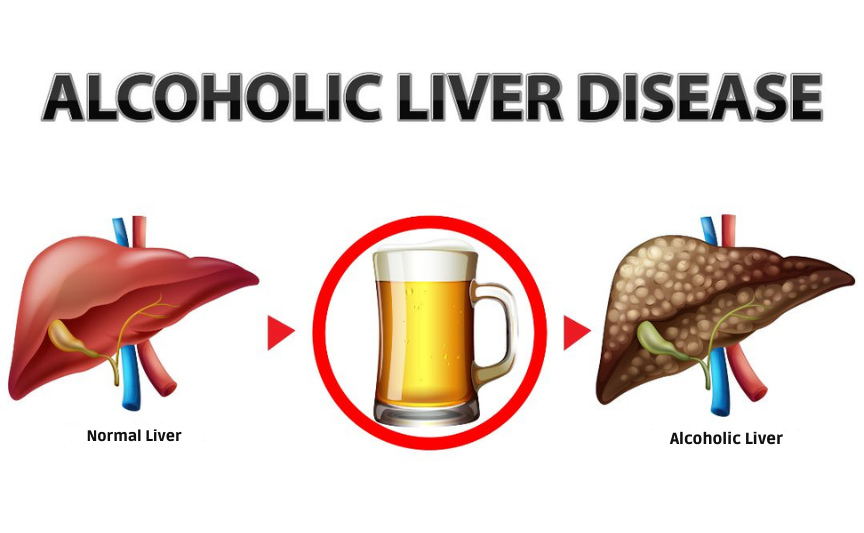Alcohol liver disease
Alcoholic Liver Disease: Causes, Symptoms & Prevention
Overview
Alcohol-related liver disease (ARLD) is a serious condition caused by excessive alcohol intake, leading to liver damage. It progresses through three stages: fatty liver, alcoholic hepatitis, and cirrhosis. While the liver has the ability to regenerate, prolonged alcohol consumption can cause irreversible damage.
Causes & Risk Factors
There is no safe limit for alcohol consumption. However, individuals who consume 40-80g of alcohol daily for over 10 years (for men) and 20-40g daily for women are at a higher risk. Women are more susceptible to liver damage even with lower alcohol intake.
Symptoms
Early stages often show no symptoms, but as liver damage progresses, signs may include:
✔ Heaviness or pain in the upper abdomen
✔ Jaundice (yellowing of skin and eyes)
✔ Swollen abdomen (ascites) and leg swelling (edema)
✔ Loss of appetite, weight loss, and weakness
✔ Gastrointestinal bleeding (vomiting blood or blood in stools)
✔ Mental confusion or altered behavior (hepatic encephalopathy)
Diagnosis & Treatment
Doctors diagnose ARLD through blood tests (LFTs, CBC), imaging (ultrasound, CT scan), and liver biopsy. Stopping alcohol completely is the most important step in treatment. Supportive care includes:
✔ High-calorie, protein-rich diet and multivitamins
✔ Medications like UDCA, steroids, and pentoxifylline for selected patients
✔ Diuretics for fluid retention and antibiotics for infections
✔ Endoscopic procedures for variceal bleeding
✔ Liver transplant for end-stage disease (requires 6 months of abstinence)
Prevention & Awareness
To keep your liver healthy, it’s best to avoid alcohol or drink within safe limits (no more than 14 units per week, spread over several days). However, the safest choice is to quit alcohol completely, as even small amounts can harm the liver over time.
If you have been drinking heavily, reducing or stopping alcohol can greatly improve your liver health and lower the risk of serious damage. Even in advanced liver disease, quitting alcohol can slow down or even reverse some damage.
If you notice symptoms like tiredness, yellowing of the skin (jaundice), or swelling in your abdomen or legs, seek medical help early. Timely diagnosis and treatment can prevent severe complications and improve your quality of life.
